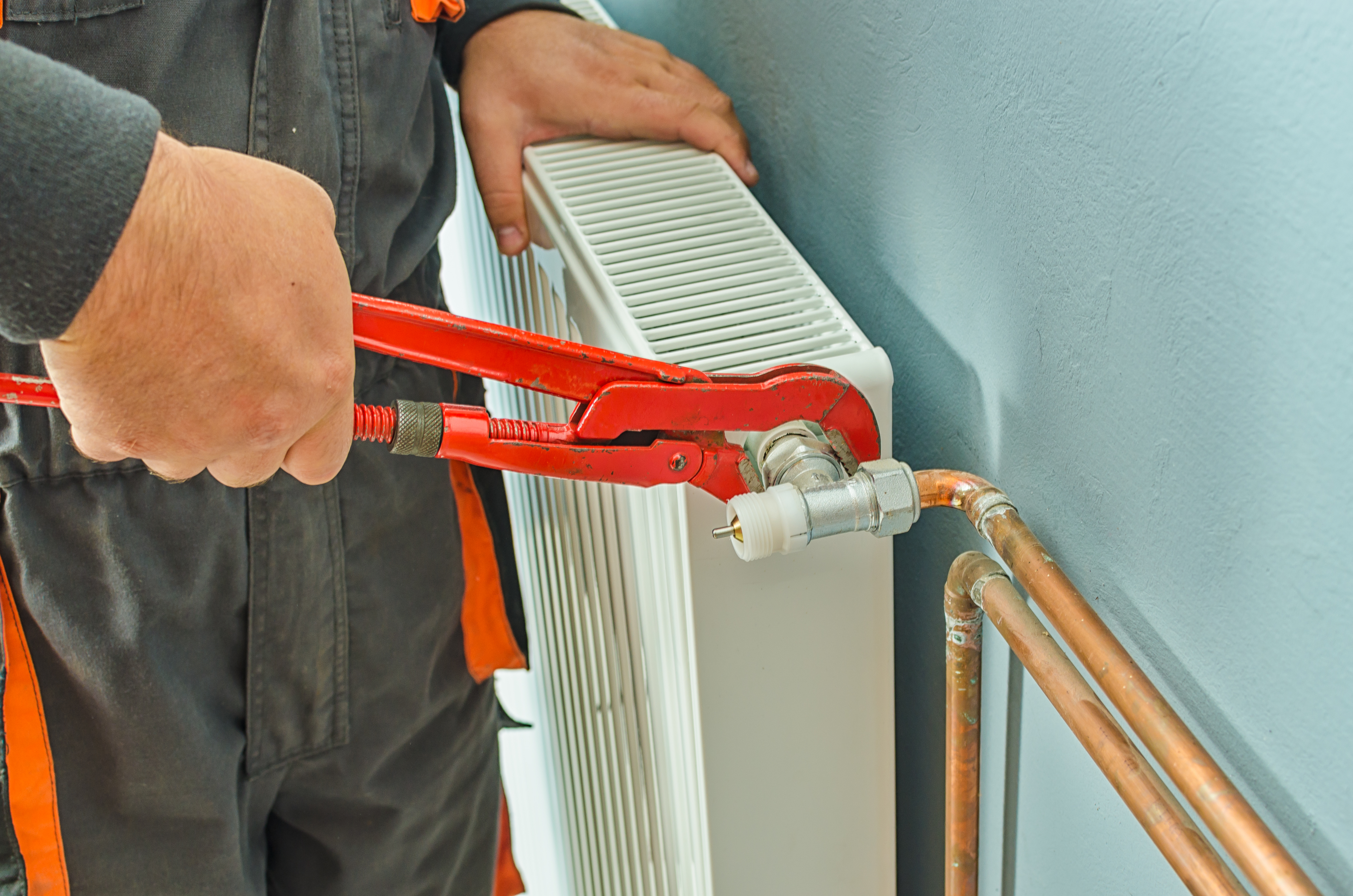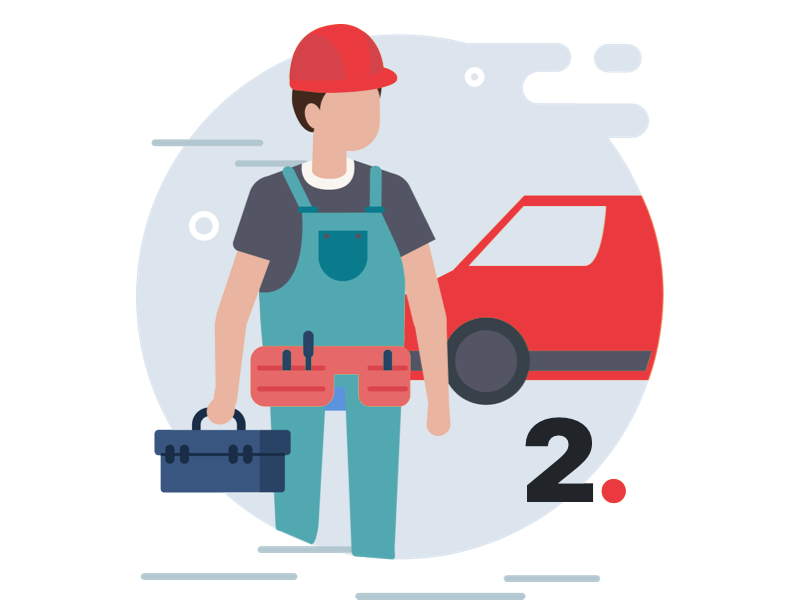Installing a radiator or thermostatic valves
Need to install a radiator or replace thermostatic valves? Our professionals can help you get back to a home that heats efficiently.

Install a radiator
When you install a radiator, the type of radiator plays an important role. Are you replacing an old model with a new radiator? Will you then need to replace and/or move all the pipes when installing your radiator? It's worth calling in a specialist who can fit your radiator, especially if you need to install several radiators or carry out a new boiler installation.
The various tasks that need to be carried out before fitting a new radiator include: draining your heating system, removing the old radiators, installing the new radiators, connecting the pipes from the existing connection points, refilling your boiler, bleeding the installed radiators and checking for any leaks and general good working order. We recommend that you have a radiator installed by a specialist in the same way as for a boiler installation. You can be sure that your home will be warm. Make an appointment with one of our heating engineers.
To choose the best radiator for your home, it's important to take into account the size and insulation of the rooms, as well as heat loss. A heating engineer will be able to advise you on the type of radiator best suited to your situation, and help you install efficient, energy-saving radiators. Wall-mounted radiators are an interesting option for small spaces, while electric radiators can be a back-up solution in certain situations.
All in all, to guarantee the best thermal comfort and save money on your heating bill, it's essential to choose your radiator carefully and call in a professional to install it. Don't hesitate to consult a heating engineer to guide you through this process and optimise your central heating system.
Install thermostatic valves
When you install a radiator, the type of radiator plays an important role. Are you going to replace an old model with a new one In principle, replacing a radiator valve is a job you can do yourself if you're a bit handy and follow a good step-by-step plan. A thermostatic valve is currently the most commonly used form of radiator valve. With a radiator valve, you can regulate the temperature of different rooms separately from each other. Do you find replacing your radiator valve too complicated a job, or would you prefer to call in a specialist to install a radiator valve or boiler installation? Then you've come to the right place.
Remember to purge your radiators
Purging a radiator is something you should do every year. This way, your radiators heat up faster and better. This will save you energy in the long run. What's more, you'll prevent your heating system from making "ticking" or other strange noises because there's air in your pipes. Removing air from pipes and radiators is not very difficult.

Book your heating engineer in 3 easy steps

Choose your service and book online
The Pro arrives within the timeslot and creates a free estimate

Our Pro carries out the service
The Pro carried out the work in accordance with the estimate I accepted.

Pay once the job is done
I pay online on Ajusto's secure platform when the job is completed

Optimizing your heating system
To complete your heating system and optimise your energy consumption, installing thermostatic valves is an ideal solution. These valves, fitted with a thermostatic head, allow you to regulate the temperature room by room. This system not only offers personalised thermal comfort, but also contributes to significant energy savings.
Each thermostatic valve is fitted with a sensor that measures the room temperature. Depending on the desired temperature, the thermostatic valve adjusts the flow of hot water circulating through the water radiator. The programmable room thermostat, on the other hand, allows you to maintain an ideal temperature in each room of the house, while avoiding over-consumption of energy.
It is vital to bleed water radiators regularly to ensure they operate at optimum efficiency. This operation, which consists of evacuating the air accumulated in the valve body, can be carried out using a bleeder. If in doubt, don't hesitate to call in a professional.
When installing a valve or tap, it is important to carefully dismantle the old equipment, taking care to drain the pipe concerned. Once the new tap or valve has been installed, check the connections to make sure there are no leaks. Once this has been done, all that's left to do is set the room thermostat to the desired room temperature.
Cast-iron radiators, on the other hand, require special attention when it comes to setting temperatures. Because of their high thermal inertia, they take longer to reach the desired temperature. The use of a control thermostat is therefore particularly recommended to regulate their temperature correctly and avoid overheating or excessive cooling.
Technology has also made its contribution to heating control. Today, there are connected radiator valves that can be controlled remotely via a mobile app. These intelligent devices can adjust the temperature in each room according to the presence of occupants and variations in outside temperature, optimising hot water production and energy consumption.
In short, the use of thermostatic taps, valves and room thermostats, combined with regular draining of radiators and precise temperature control, is the key to guaranteeing thermal comfort in every room of your home and saving energy.
Testimonials from our users
Any other questions?
Our customer service team is available by phone from Monday to Thursday from 9am to 5pm and on Fridays from 9am to 12pm. To help you quickly and easily, we have listed the most frequently asked questions.
Visit our blog
For more information and inspiration, you're always welcome to visit our blog, which is packed with useful articles and tips and tricks on our various services.